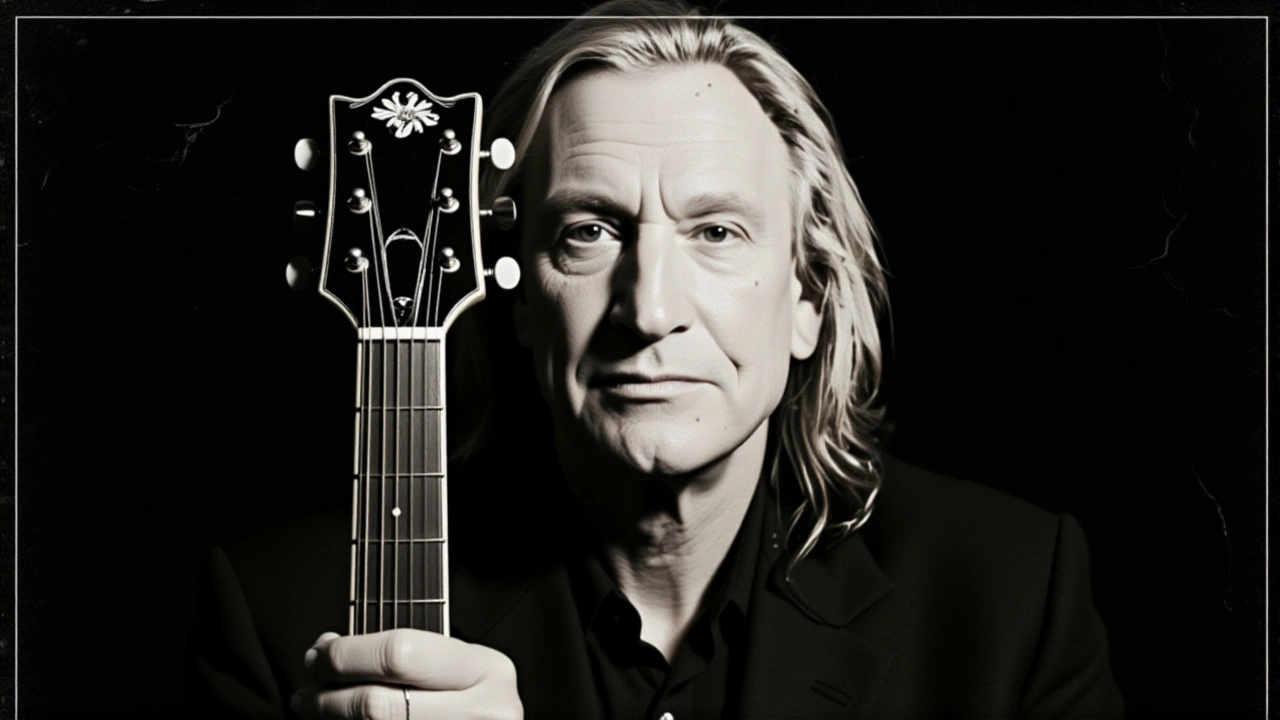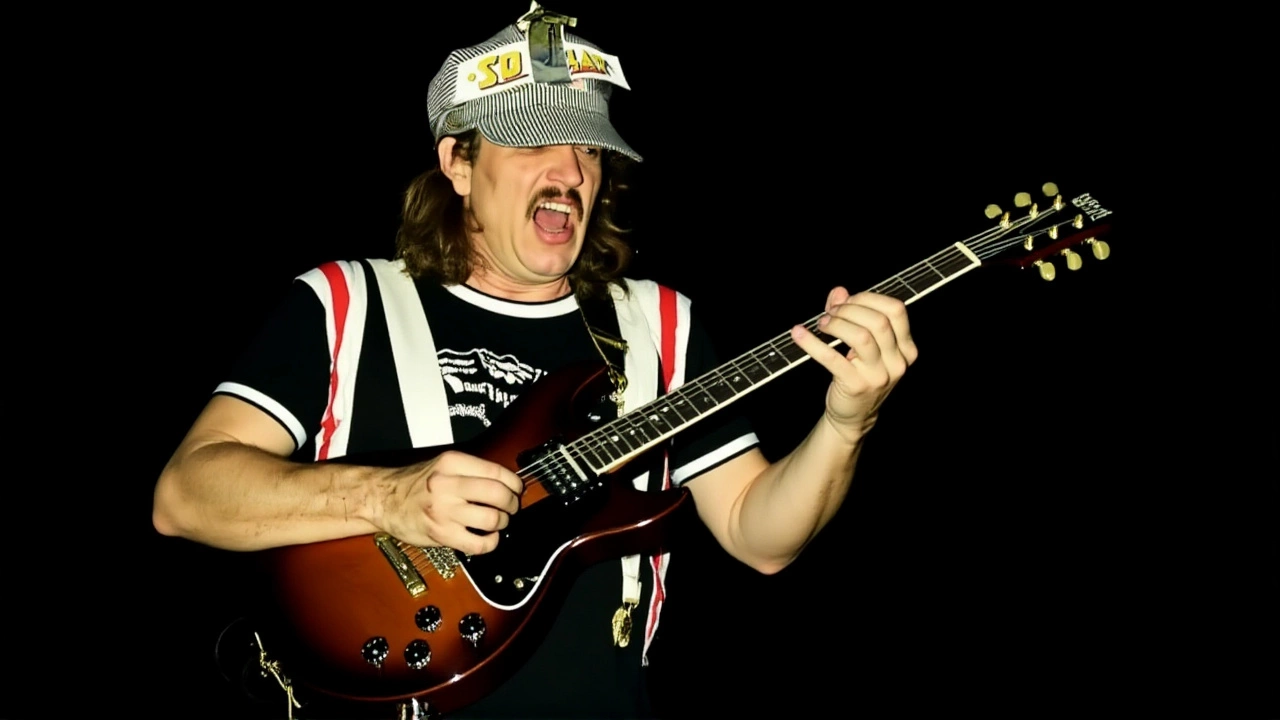When Joe Walsh sat down to list his five favorite singers of all time, he didn’t pick flashy pop stars or soul icons—he went straight to the heart of American rock’s golden era: Don Henley and Glenn Frey as a unit, Stevie Nicks alone, and then Graham Nash and David Crosby together. It’s not just a list—it’s a map of his musical soul. The revelation, first reported by Far Out Magazine, cuts deeper than nostalgia. These aren’t just singers Walsh admires. They’re the voices he lived beside, harmonized with, and learned from—men and women who shaped the sound of a generation.
Why These Five? The Bonds Behind the List
Walsh’s choices aren’t random. He joined the Eagles in 1975, replacing Bernie Leadon, just as Henley and Frey were turning the band into a cultural force. He didn’t just play guitar—he became part of their vocal architecture. You hear it in “Life in the Fast Lane,” where his rasp locks into Henley’s baritone like two old friends finishing each other’s sentences. And Frey? The man who wrote “Take It Easy” with Jackson Browne? Walsh once said in an interview, “Glenn had this way of making even the simplest lyric feel like it mattered.” That’s reverence.
Then there’s Stevie Nicks. Her voice—haunting, fluttering, almost mystical—was the counterpoint to the Eagles’ gritty realism. Walsh toured with Fleetwood Mac in the late ’70s, watched her command stages with nothing but a shawl and a mic, and later admitted, “She doesn’t sing notes. She sings feelings.” He didn’t need to be in her band to be moved by her.
And Nash and Crosby? That’s where Walsh’s roots in the California sound come full circle. He played with Crosby in the early days, before the Eagles even formed. “Crosby had this wild, untamed energy,” Walsh recalled in a 2018 podcast. “Graham? He was the glue. The harmony guy who made everything sound bigger than it was.” Together, they created a vocal blend so tight, so layered, it became the blueprint for harmony rock. Walsh didn’t just admire it—he tried to replicate it, often failing, but always trying.
An Underrated Voice: Joe Walsh the Singer
Here’s the twist: Walsh doesn’t think of himself as a singer. That’s what makes this list so revealing. He’s spent decades downplaying his own voice, even though fans and musicians know better. Back in May 2016, a user named matt53 Pro on the Kentamplin Vocal Academy forum wrote: “If you’ve ever tried to sing ‘Funk 49,’ you can really appreciate how good he was.”
That track—walsh’s breakout solo hit from 1973—isn’t just guitar-driven. It’s a masterclass in vocal texture: gravelly, loose, dripping with attitude. “He’s not hitting perfect notes,” the forum user noted. “He’s hitting the *right* ones. His voice sounds like he’s laughing while he’s yelling.” And here’s the kicker: when Walsh left the James Gang in 1972, his replacement had to drop the key of “Funk 49” several notes just to sing it. That’s not a fluke. That’s a voice that bends the rules.
Rolling Stone ranked Walsh No. 54 on their 2011 list of the “100 Greatest Guitarists of All Time.” But his singing? Barely mentioned. And yet, when you listen to his solo work—“Rocky Mountain Way,” “Life’s Been Good,” even his quiet ballad “The Radio Song”—you hear a vocalist with range, grit, and a rare ability to make you feel the joy, the exhaustion, the sarcasm. He sings like a man who’s been through it all. And he has.
More Than Music: VetsAid and a Legacy in Motion
Walsh didn’t just play music—he built something lasting. In 2017, he founded VetsAid, a nonprofit for veterans’ services, inspired by his own status as a Gold Star son. His father, a World War II veteran, never talked about the war. Walsh does. He plays benefit concerts, auctions gear, and even got Nathaniel Rateliff and Susan Tedeschi to join him on stage.
This November 15, 2025, he’ll headline VetsAid 2025 at the InTrust Bank Arena in downtown Wichita, Kansas—his hometown. The lineup includes rock veterans and rising stars, all playing for a cause. Pre-sales began August 5, 2025, with the code “WICHITA.”
And just last month, he appeared on The Voice 2025 as a Mega Mentor. Clips show him jamming with the house band, grinning like a kid who just found his old Fender. No grand speeches. Just music. That’s Walsh.

What This Means for Rock’s Legacy
Walsh’s list isn’t about ranking—it’s about belonging. He didn’t pick singers because they sold the most records. He picked them because they made him feel something real. In an age of auto-tune and algorithm-driven playlists, that’s radical. His choices remind us that rock’s greatest voices weren’t always the loudest or the most polished. Sometimes, they were the ones who sang like they were telling you a secret over a campfire.
And maybe that’s why, decades later, we still listen.
Frequently Asked Questions
Why did Joe Walsh group Henley and Frey together as one entry?
Walsh treated Henley and Frey as a vocal unit because their harmonies defined the Eagles’ sound. He didn’t just play with them—he relied on their interplay to shape songs. Their voices were so intertwined that Walsh often said, “You can’t separate one from the other.” That’s why he listed them as a single entry, not two separate singers.
How did Stevie Nicks influence Joe Walsh’s singing style?
While Walsh didn’t imitate Nicks, he admired how she used breath and phrasing to convey emotion over technical perfection. He’s mentioned in interviews that her ability to make a song feel like a story—rather than a performance—changed how he approached his own vocals, especially on ballads like “The Best of Me.”
Is Joe Walsh still performing live?
Yes. He’s actively touring, with his next major show being VetsAid 2025 on November 15 in Wichita, Kansas. He also performed on The Voice 2025 and continues to play select dates with his band. At 77, he’s not slowing down—he’s just choosing gigs that matter.
What’s the significance of VetsAid to Joe Walsh’s career?
VetsAid is Walsh’s most important legacy beyond music. As the son of a WWII veteran, he created the nonprofit to honor his father and support veterans’ mental health and housing. Since 2017, it’s raised over $2.3 million for Kansas-based veteran services. For Walsh, it’s not charity—it’s family.
Did Joe Walsh ever sing lead on Eagles songs?
Yes. He sang lead on “Life’s Been Good,” “Rocky Mountain Way,” and “In the City,” among others. While Henley and Frey handled most of the band’s lead vocals, Walsh’s gritty, soulful delivery on tracks like “The Sad Café” and “Wasted Time” (on the 1979 album The Long Run) became fan favorites and showcased his underrated vocal range.
Why is Joe Walsh’s voice considered underrated?
Because he’s better known as a guitarist, and his voice doesn’t fit the “perfect pitch” mold. But musicians who’ve studied his work—like session singer and producer David Paich—say Walsh’s tone, timing, and emotional honesty make him one of rock’s most authentic vocalists. He sings like he’s talking to you, not performing for you.
